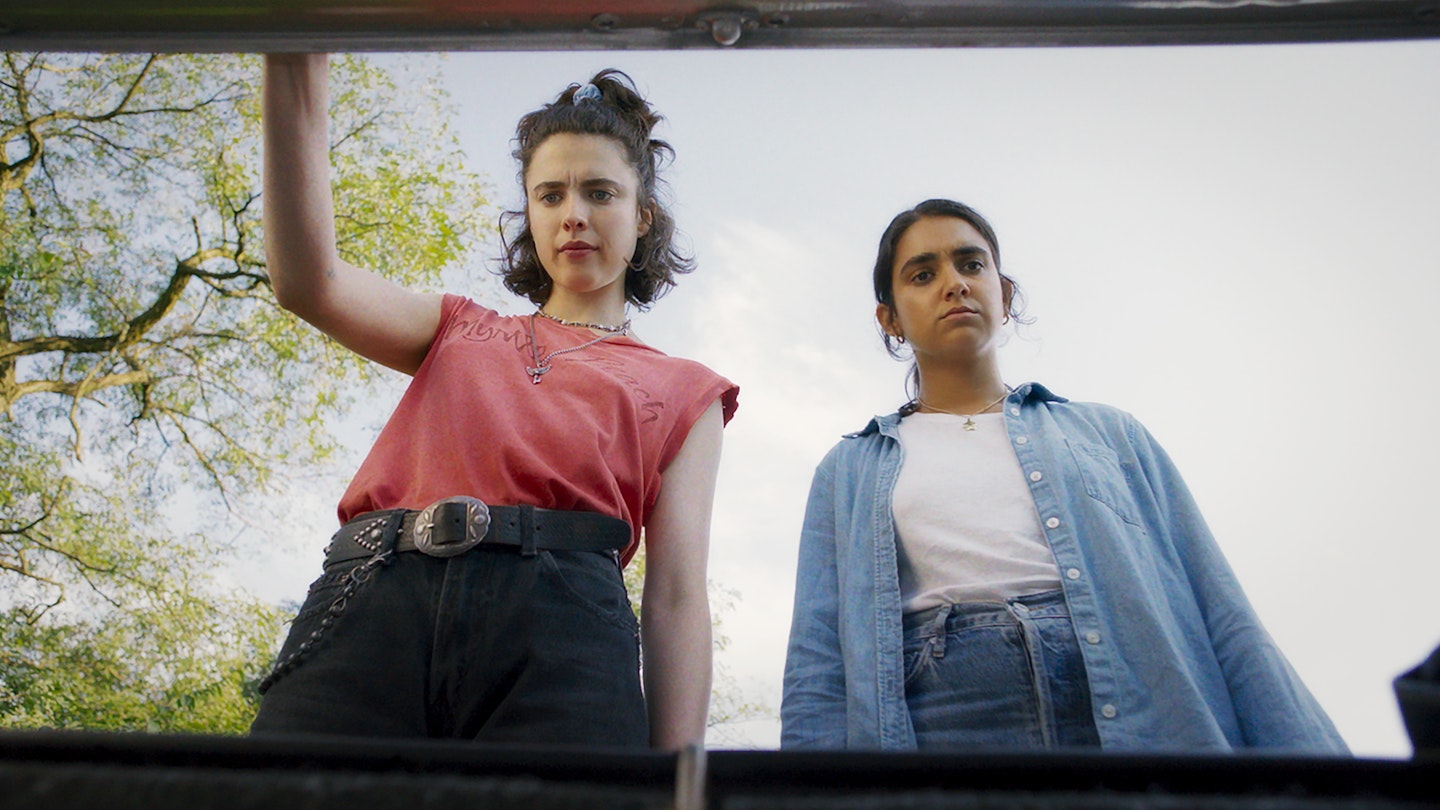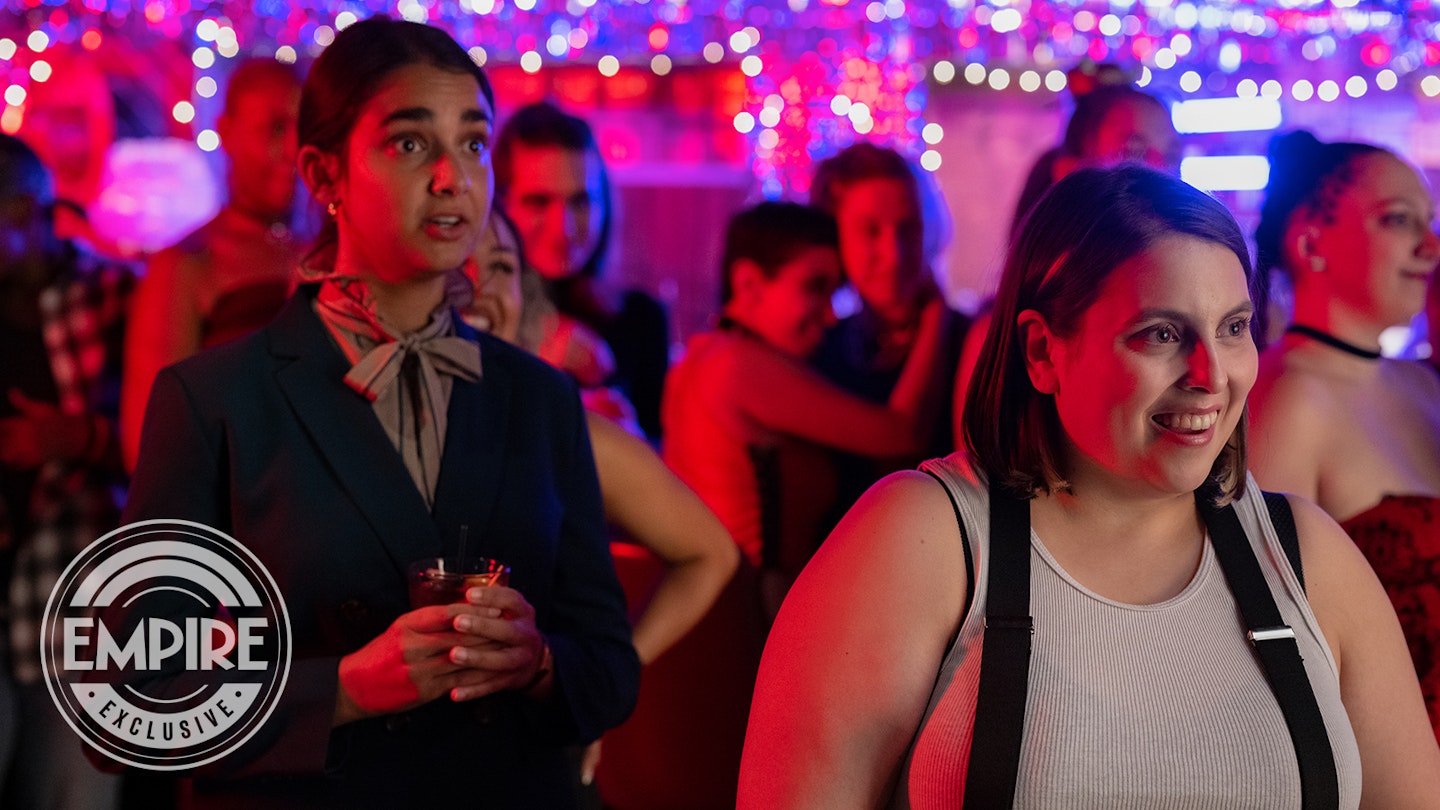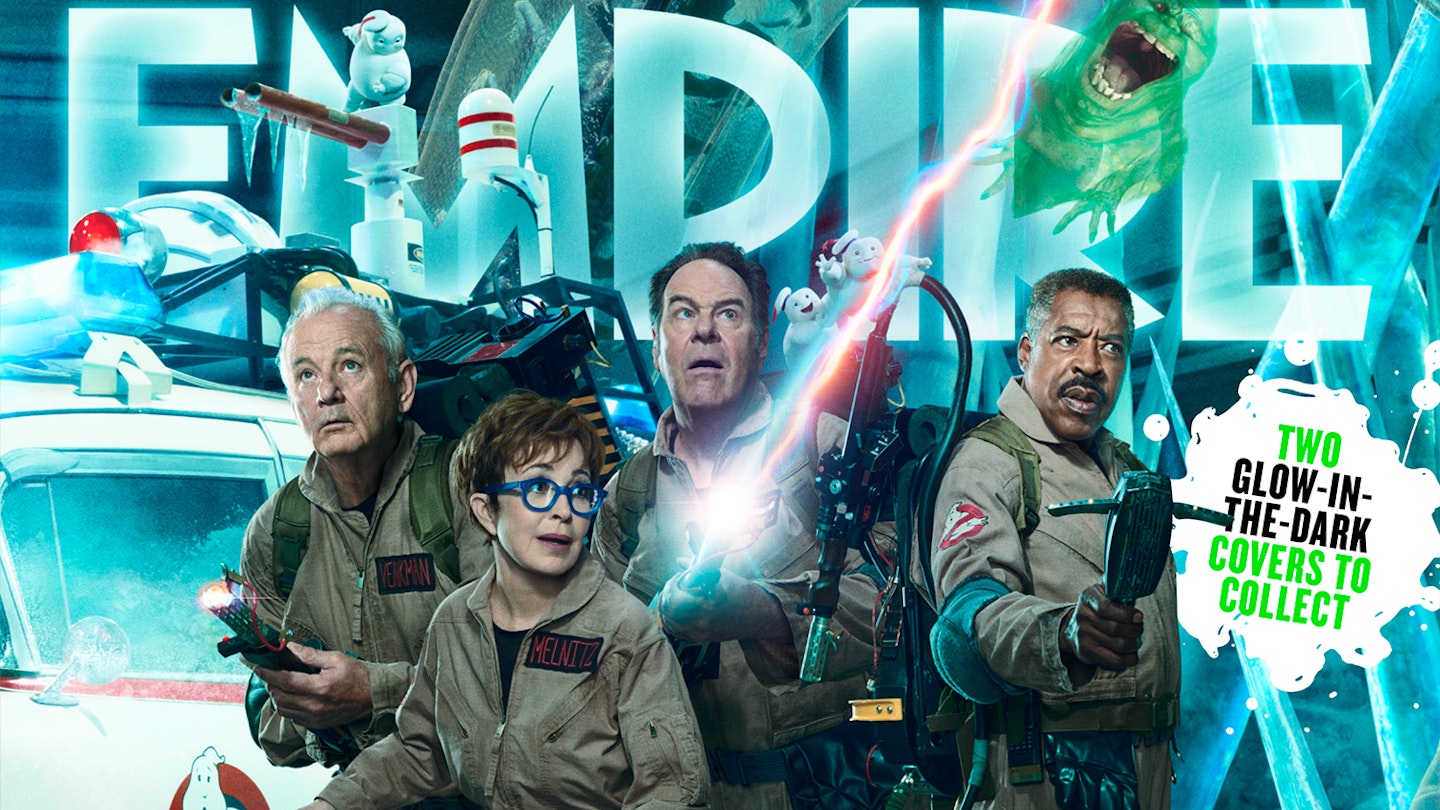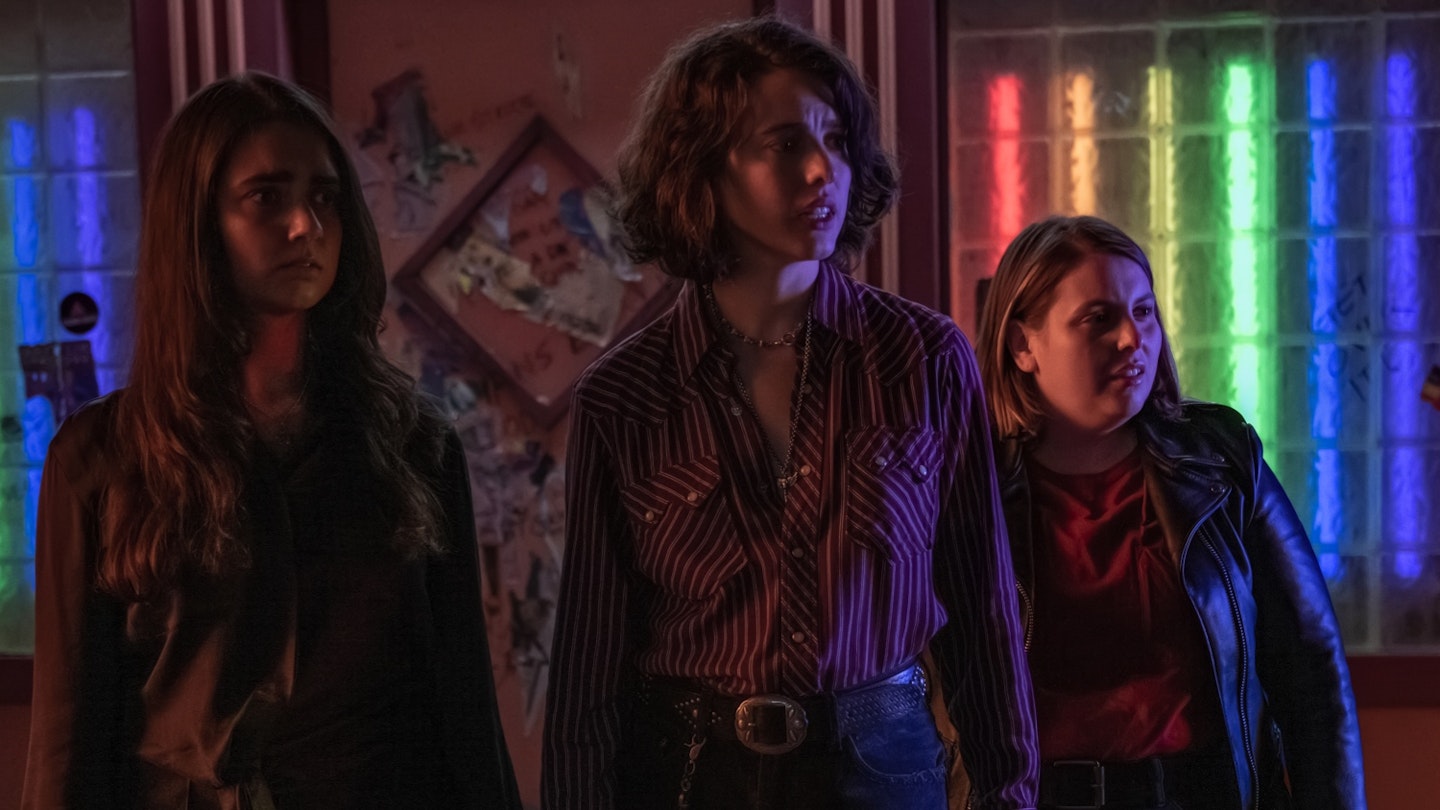Drive-Away Dolls was originally called ‘Drive-Away Dykes’ — a far better, funnier, and frankly more accurate title than the marketing- friendly one eventually settled on. (That original title is even cheekily acknowledged in the closing credits.) Because this film is, to use the technical parlance, hella lesbian: from the comedy-cunnilingus found in the opening five minutes to the “very committed lesbians” of a college soccer team, Dolls wears its sapphic colours loud and proud.

That’s notable, given that this is a Coen brother film, singular. Directed by Ethan Coen (his first without bigger brother Joel, if you don’t count his 2022 Jerry Lee Lewis documentary), and co-written by Coen and his wife Tricia Cooke, who is queer, there is a unique energy here which can’t be found in any of the previous 18 films from the brothers. It has a specificity, in subject matter and period, that feels refreshing, a rare example of the Coen-canon that centres female, gay characters.
This is a film that almost incorrigibly just wants to have a good time.
Which is not to say that it doesn’t feel, well, Coen-y. Margaret Qualley, as the kooky, charismatic Jamie, drops folksy Southern phrases like “Honey darlin’!” — channelling Nicolas Cage’s H.I. ‘Hi’ McDunnough from Raising Arizona. Geraldine Viswanathan’s Marian, meanwhile, is bookish and socially awkward, like a more affable Barton Fink. Joey Slotnick and C. J. Wilson play hired goons chasing down our heroes with a haplessness that recalls Steve Buscemi and Peter Stormare in Fargo. And the overall tone is all pep and vinegar, like the breeziest of Coen crime comedies: imagine if Burn After Reading and The Big Lebowski had a lesbian baby, and you’re part of the way there.
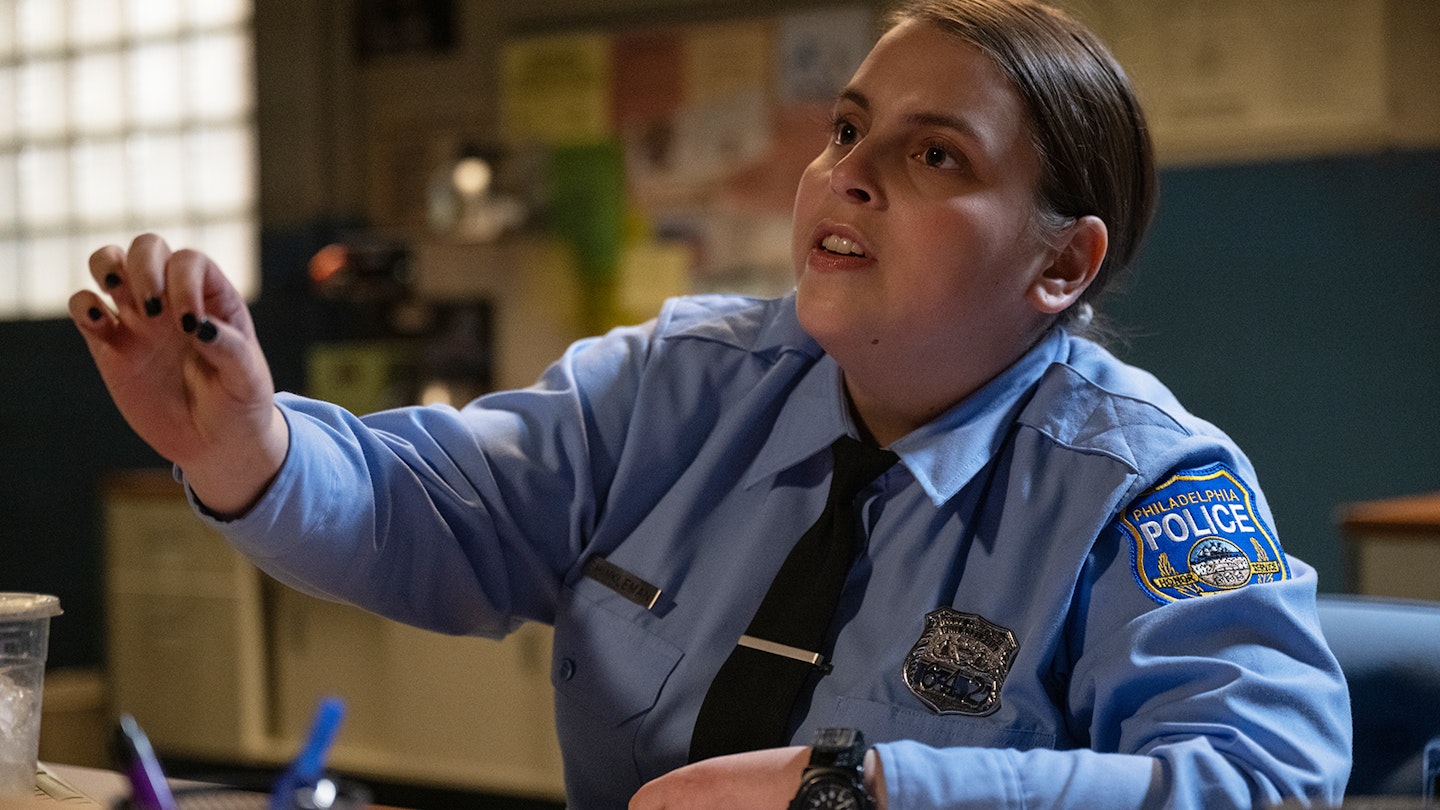
This is a film that almost incorrigibly just wants to have a good time, its spirit embodied in Qualley’s Jamie, whose primary driving motivation, à la American Pie, is to get laid. There are two threads running throughout: a friendship (or more?) between Jamie and Marian, pitched beautifully by the two leads; and a screwball crime conspiracy that bubbles under the surface, both threads exploding into total absurdity in the final act. The climactic reveal needs to be enjoyed for yourself — suffice to say that this entire movie is essentially one big dick joke.
Coen and Cooke are desperate for you not to take it too seriously. Dolls’ characters are messy and flawed and sex-obsessed. There are wacky, increasingly bonkers sitcom-esque scene transitions. Nobody really learns anything by the end. Some might crave a bit more substance, but this is a film defiantly lacking in much of that. It is, ultimately, a shaggy dog story, about shagging.
